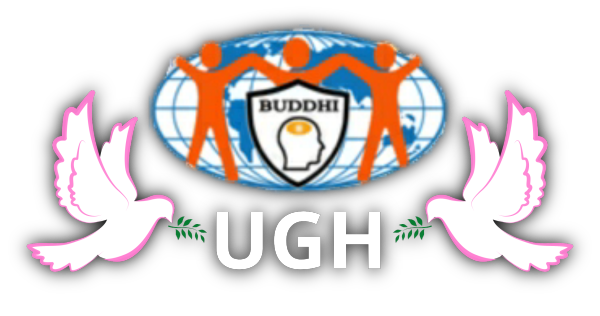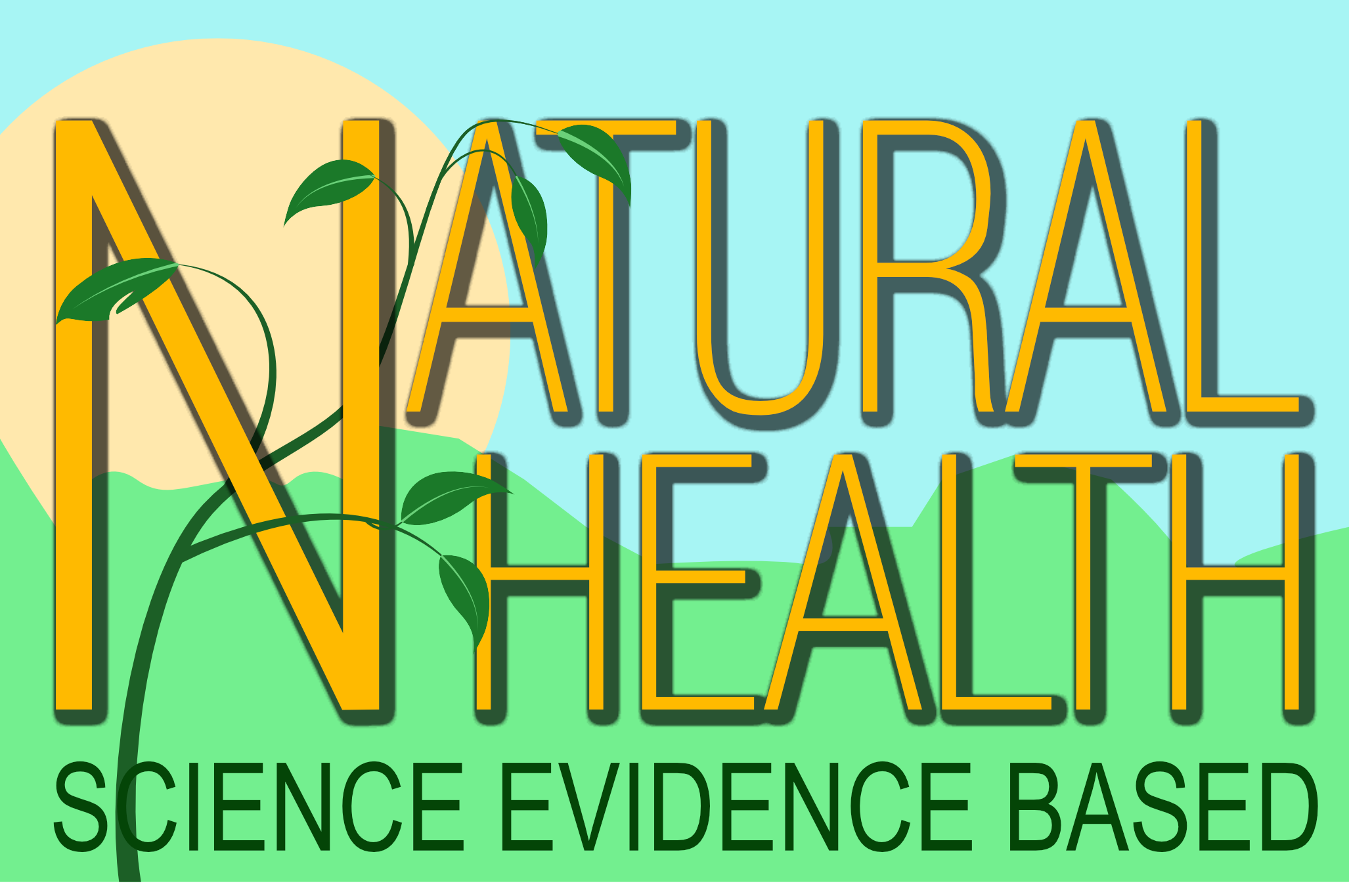The Most Dangerous Place?
Where is the most dangerous place in the world today?
A strange question you may say, but my answer may well surprise you.
On first thinking about an answer to this question many people may immediately bring to mind some war ravaged region of the world, and quite rightly so; but I believe that there is a far more dangerous place. Let me explain.
Conflicts that result in war or other armed occurrence are, without doubt, one of the greatest tragedies that human kind inflicts upon itself.
Each conflict wreaks unspeakable horrors on those directly and indirectly affected by it, and each death in war is a needless avoidable waste. The effects, both physical and
psychological, on those who live through and survive war will be long-lasting and may even affect subsequent genrations.
That said, war zones and armed conflicts, however tragic and unjustifiable, are mostly transient and will ultimately reach an end - even the two World Wars eventually stopped.
However there is a place far more dangerous than any war zone, because the consequences of going there affects every living human being.

The Internet
So, where is this place that is more dangerous than a war zone? You may already know the answer but, just in case, the answer is:
the internet.
"No!" I hear you cry, "the internet is a force for good. How can it be dangerous?"
"No!" I hear you cry, "the internet is a force for good. How can it be dangerous?"
I agree, the internet is a force for good, but only if it is used in the right way.
Let me explain.
Humanity has discovered many things over millennia that have irrevocably altered the way we think, what we believe, and how we live our lives. The number of these dicoveries is way too long to list here, but I would cite the following as examples; weaving, agriculture, chemistry, printing, electricity, medicine, mathematics and so on.
But there is a problem, and that problem stems from man's insatiable curiosity and inate base instincts. These have fuelled man's quests, for example, to build better and bigger, travel further and faster, to live longer, and to wage warfare more destructively.
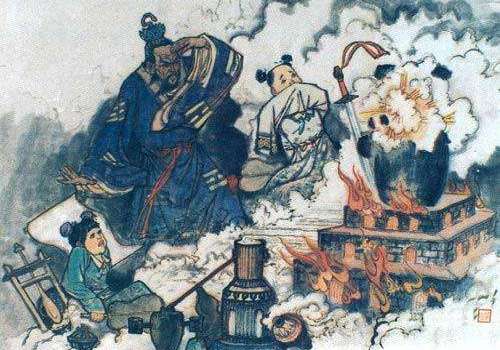
For example, it is believed that a Chinese alchemist, looking for a substance to prolong life, mixed sulfur, charcoal, and potassium nitrate. The ingredients caught fire and a
black powder was created. It wasn't long before it was found that when this powder was ignited it created a lot of gas (and smoke).
Human ingenuity then kicked in and it was found that if this powder was packed into a tube and ignited, it exploded with a loud noise. At first these noise making qualities were
used to produce 'fire crackers' used at weddings and funerals to ward off evil spirits.
Later the explosive qualities of the powder were used to make weapons that would propel objects at enemy soldiers, and so the first rocket cannons were used in warfare. This is just one example of a discovery used innocently at first but then hijacked for belligerent purposes. The history of mankind is littered with many, many other such examples.
Knowledge is the key to all things
Knowledge is the key to all things and, in the scale of humanity's evolution - if we compress it into twenty-four hours, more knowledge has been gained in the last couple of seconds than during all the previous twenty-three hours, fifty-nine minutes and fifty-eight seconds.
The Internet as we know it today didn't just suddenly appear; it happened as the result of one person's ideas using previously discovered technologies and processes in a unique way, technologies such as electricity, semi-conductors, computers, computing language and mathematics to name but a very few. The web was originally conceived and developed to meet the demand for automated information-sharing between scientists in universities and institutes around the world; although this was, in itself, an extension of ideas already in existence.
Up to the mid 1990's computers were stand-alone items in which data was stored and used in isolation with no interconnectivity to other computers. The major breakthrough leading to the internet as we know it came with the 'invention' of HTTP (Hypertext Transfer Protocol) by Tim Berners-Lee in the 1990's.
Suffice it to say that the internet is so much a part of our daily lives now, that many people in developed countries would have a hard time coping without it; it is not implausible that without the internet many economies would collapse entirely, with catastrophic consequences, until the old established methods of work, rest, and play reassert themselves.
But, this hasn't answered my original question.
"All religions, arts and sciences are branches of the same tree. All these aspirations are directed toward ennobling man's life, lifting it from the sphere of mere physical existence and leading the individual towards freedom."
- Albert Einstein
Most people - not all - living in developed economies now have access to almost unlimited information, almost instantly. And this is where the glory, and the disgrace, of the internet starts to show itself.
Whereas the early days of the internet allowed only retrieval of stored information, today anyone using the internet, and its associated constructs, can not only retrieve information but can create it as well - just as I am doing here.
As with virtually all inventions throughout history, humanity has used them for good but also for evil, and unfortunately the internet has been used in the same way. While there is a vast wealth of good honest information there is a huge festering carbuncle of false, misleading, and often dangerous, information available for viewing 24/7.
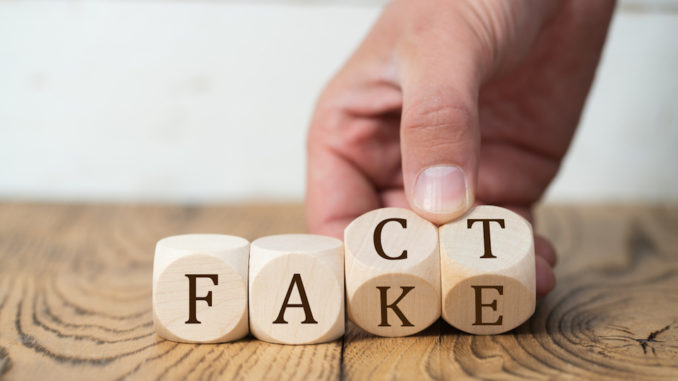
The problem with this is that there is often no reliable way for the 'ordinary' person to immediately distinguish between the two - especially when malintent and or criminal activity is involved.
See here our section listing 'Six Ways to Spot Fake News' from mindtools.com
Another problem is that once information is available on the internet it will most likely stay available for years to come. So information that is relevant today, but is outdated tomorrow, can still exert its influence long after its sell-by date has expired.
Additionally, most supporters of the internet laud its openness and ability to give a stage to freedom of speech and liberty. However this is not always the case with many Governments around the world actively curtailing its openness, and quashing civil liberty by repressing internet freedom of speech.
The Deep Web
The Deep web, invisible web, or hidden web are parts of the World Wide Web whose contents are not indexed by standard web search-engines. The opposite term to the deep web is the "surface web" or "public web", which is accessible to anyone/everyone using the Internet. Computer-scientist Michael K. Bergman is credited with coining the term Deep Web in 2001 as a search-indexing term.
When you think of the Deep Web, what comes to mind. Illegal activity; Phishing and scams; Bitcoins?
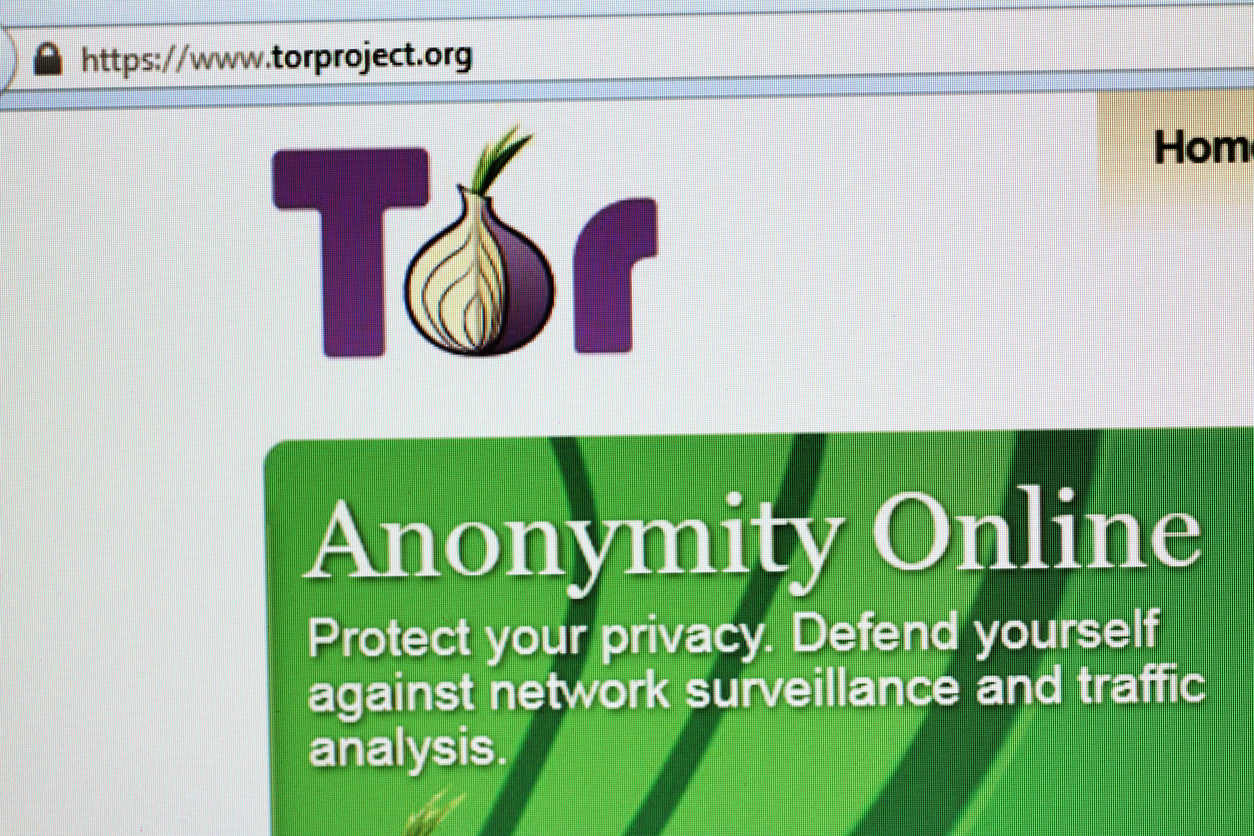
Well, you'd be kind of right… and kind of wrong. These are examples of things found in the Dark Web, a collection of websites that have hidden IP addresses and may require specific software, such as the Tor (The Onion Router) browser, to access.
Wikipedia: Onion routing is implemented by encryption in the application layer of a communication protocol stack, nested like the layers of an onion.
Tor encrypts the data, including the next node destination IP address, multiple times and sends it through a virtual circuit comprising successive,
random-selection Tor relays. Each relay decrypts a layer of encryption to reveal the next relay in the circuit to pass the remaining encrypted data on to it. The final relay decrypts
the innermost layer of encryption and sends the original data to its destination without revealing or knowing the source IP address.
Because the routing of the communication was partly concealed at every hop in the Tor circuit, this method eliminates any single point at which the communicating peers can be determined
through network surveillance that relies upon knowing its source and destination.
The Dark Web is however only a small fraction, around 0.01%, of the Deep Web, which contains Internet content that is not searchable by your standard search engines such as Google and Bing.
In other words, if Google can't find what you're looking for, it's probably still out there in the World Wide Web - it's just in the harder-to-access Deep Web. If Google or Bing can find it, then it's probably on the Surface Web, which makes up about 0.03% of the Internet.
The Deep Web and the Dark Web have been merged and fused in the public mind although they are actualy not the same.
Most people don't know that the Deep Web contains mostly benign sites, such as your password-protected email account, certain parts of paid subscription services like Netflix, and
sites that can be accessed only through an online form. (Just imagine if someone could access your Gmail inbox by simply googling your name!)
Also, the Deep Web is huge, it has been estimated to be 400–550 times larger than the Surface Web, and analysts believe it's growing exponentially.
By comparison, the Dark Web is pretty small, with Dark Web sites numbering only in the thousands. The websites in the Dark Web are characterised by their use of encryption software that makes their users and their locations anonymous. That's why illegal activity is so common on the Dark Web, users can withhold their identity; the owners of illegal websites can hide their location; and data can be transferred anonymously.
This means that the Dark Web is full of illegal drug and firearm transactions, pornography, and gambling. A notorious online black market called Silk Road was shut down by the FBI in 2013, and another, HANSA, was shut down by Dutch law enforcement.
But the Dark Web is not only a home to criminals and illegal activity. It's also used by political whistle-blowers, activists, law enforcement, and journalists who may be censored or could risk political retaliation if discovered by their government. Most notably, the website WikiLeaks has its home on the Dark Web.
The content of the Deep Web can be located and accessed by a direct URL or IP address, but may require a password or other security access to get past public-website pages.
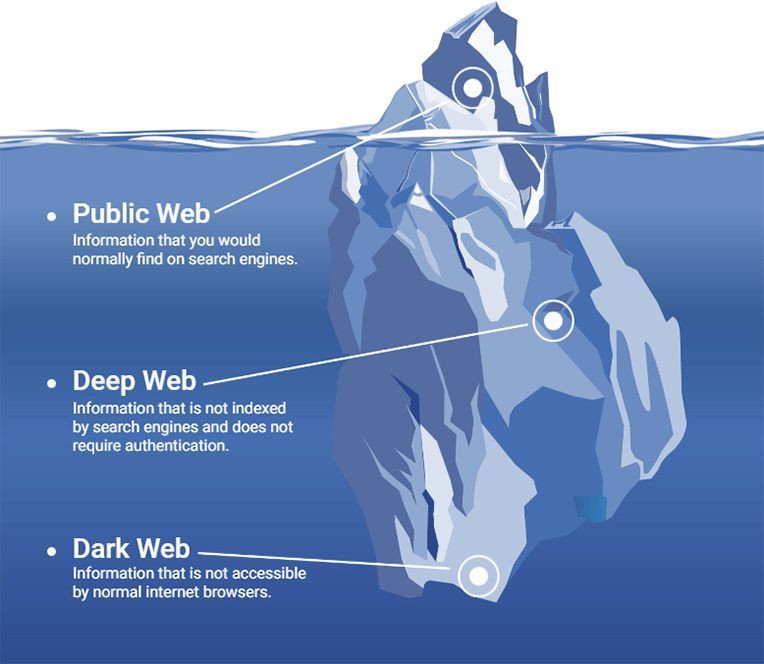
Interestingly, as much as invisible 'dark matter' and 'dark energy' is thought to compose the bulk of the cosmos - with only a small proportion of matter making up the visible universe, so to the internet that we 'see' forms only a small proportion of the actual volume of the internet. If we take the iceberg as an analogy, a vast proportion of the internet, the Deep Web and the Dark Web, is hidden from view, just as the largest proprtion of the iceberg is sumerged beneath the water.
The Dark Web

Dark web definition
The dark web is a part of the internet that isn't indexed by search engines. You've no doubt heard talk of the “dark web” as a hotbed of criminal activity — and it is. Researchers Daniel Moore and Thomas Rid of King's College in London classified the contents of 2,723 live dark web sites over a five-week period in 2015 and found that 57% host illicit material.
A 2019 study, Into the Web of Profit, conducted by Dr. Michael McGuires at the University of Surrey, shows that things have become worse. The number of dark web listings that could harm an enterprise has risen by 20% since 2016. Of all listings (excluding those selling drugs), 60% could potentially harm enterprises.
You can buy credit card numbers, all manner of drugs, guns, counterfeit money, stolen subscription credentials, hacked Netflix accounts and software that helps you break into other people’s computers. Buy login credentials to a $50,000 Bank of America account for $500. Get $3,000 in counterfeit $20 bills for $600. Buy seven prepaid debit cards, each with a $2,500 balance, for $500 (express shipping included). A "lifetime" Netflix premium account goes for $6. You can hire hackers to attack computers for you. You can buy usernames and passwords.
But not everything is illegal, the dark web also has a legitimate side. For example, you can join a chess club or BlackBook, a social network described as the "the Facebook of Tor".
How did the Dark Web come about?
In the late 1990s, two research organisations in the U.S. Department of Defense drove efforts to develop an anonymised and encrypted network that would protect the sensitive communications of US spies. This secret network would not be known or accessible to ordinary internet surfers. And while the original clandestine intention was never fully realised, some of the researchers saw a different value proposition at hand - instead launching a non-profit entity focused on anonymity for human rights and privacy activists.
Enter the Tor network, short for "The Onion Router", so named because of the many layers of encryption that guard passing information. Tor lives on the fringe of the internet and serves as the underlying technology of the dark web - a collection of hidden sites inaccessible via a regular browser and not indexed by search engines such as Google. The Tor browser - a free download - is all you need to unlock this hidden corner of the web where privacy is paramount. Radical anonymity, however, casts a long shadow.
The truth about the dark web is that, in addition to offering extreme privacy and protection from the surveillance of authoritarian governments, it facilitates a growing underground marketplace that sophisticated criminals use to traffic drugs, stolen identities, child pornography, and other illicit and illegal products and services. And with untraceable cryptocurrency as the primary means of payment, close cooperation between law enforcement, financial institutions, and regulators around the world is required to tighten the screws on illegal, underhand, deceitful, and dangerous activity.
The Good, the Bad, and the Ugly of the Internet
It may seem from my article that I don't like the internet. I can categorically say that this is not my view. I believe that the internet has brought about one of the great beneficial changes for humanity. it is, however, not without its downside.
Below are examples of what may be considered to be The Good, The Bad, and The Ugly of the Internet
The Good
The Bad
Let’s start with the resoundingly positive attributes of the Internet. Firstly, it makes life extraordinarily easier; banking, shopping, and direct communication with other
individuals and businesses are all simpler and faster. People can get more done in a shorter amount of time. It provides people with access to a knowledge base of a scale
unprecedented in human history.
It provides the opportunity to connect with like-minded people from anywhere in the world at minimal cost, giving people the ability to do wonderful
things for others whom they may have never met.
It provides businesses and individuals, alike, the access to better opportunities, more knowledge, and interactions with people who matter to them.
The Internet has changed things enormously for entrepreneurs the world over. Data storage and retrieval is faster. Cloud platforms of all types offer software, hardware,
security, and development platforms that reduce the enormous capital costs many organisations spend on their IT.
It gives organisations access to a huge store of resources, including a growing mobile workforce that is available around the clock, promoting better productivity.
It provides the opportunity to streamline all types of work, whether it be reducing face-to-face interactions with your vendors, or utilising tracking software that helps
administrators build more efficient business practices.
The Internet has provided a social outlet to people who didn’t have one. The use of social media has revolutionized the way people share and communicate. Each person has the freedom to do whatever they choose online, and this often results in positive action. Many important groups that previously have been marginalised, for one reason or another, are now able to promote their platforms thoroughly and effectively.
There are some things about the Internet that are not so good. For every benefit listed above, there is a drawback. The easier access to information opens the door for more misinformation. For all the ease of banking, shopping, and communication there are criminals looking to steal resources and personal information for profit. For every like-minded person you meet, there are all manners of other undesirable people such as Internet trolls and scammers.
Internet Social media has had a phenominal amount of influence, but for all the good that it does, it also creates what is known as a "toxic mirror" effect. This is the
psychological effect of making people feel bad about themselves by constantly being exposed to information that would make them create negative opinions about themselves.
The toxic mirror makes anything that isn't seen as physical, emotional, and mental perfection, ugly and bad.
Beyond the toxic mirror, many people use social media in ways that hurt the people around them. The manifestation of a social persona can often present the opportunity for
a user to put out very public misinformation.
This break from reality further confounds people's ability to properly identify risk, putting them in harmful situations.
The Internet is filled with individuals and groups of trolls, stalkers, and bullies. These individuals and groups are allowed to run rampant, as people often don't have a lot of resources to defend against them. These individuals hide behind their Internet persona, making civil action against them extremely difficult. Cyberbullying, specifically, can cause great emotional harm to people of all ages.
The Ugly
The Internet is actually a pretty dangerous place; and, it's a lot bigger than people think. While the usable part of the Internet is catalogued by most of the major search engines, there is a massive part of the Internet that is filled to the brim with risky behaviors. The deep web, and more specifically, the dark web, is filled with problematic content. While users can't just access this part of the Internet, the people who do are often the hackers and dissidents of the world. Some are evil, some just unfortunate, but most of the dark web is filled with a black market that makes available goods and services that the average person has no use for.
Murder for hire? Check.
Drug catalogues? Check.
Hacking resources? Check.
It's essentially an anti-social person's playground filled with hate and illegal material. Think of the dark web as a city. It just so happens that some places in that virtual city (like many other real cities) are very dangerous, and while you may just find something you can't find anywhere else, staying far away is a good way to avoid the negatives altogether.
For businesses, the ugliest parts of the Internet are the countless hacking collectives and individual those 'lone wolf' hackers who are almost constantly trying to gain
access to their network.
Computer viruses and other malware, including ransomware, are such a big threat that businesses spend billions and billions of dollars a year trying to protect themselves
and their clients from people looking to steal their data and sell it off.
The Internet is a lot of good to a lot of people, but as more derision, more hate, more criminal behavior, and more strategic subversion occur on the Internet, the more it becomes something it was never intended to be. The saving grace is the hundreds of millions of users who still use the Internet to make their lives, and the lives of people around them, better.
Conclusion
Be cautious, be skeptical, stay safe
I believe that the internet CAN be a force for good but, as with most things in life, it pays for us to know where danger is to be found; that way we can prepare our defenses. If I you will allow me to give some words of advice when using the internet, then they are: Be cautious, be skeptical, stay safe.
Below I have included an article from mindtools.com on how to spot fake news:
Six Ways to Spot Fake News
Separating fact from fiction accurately can seem daunting. But getting to the truth is always worth the effort – even if it's not what you want to hear! Use these six steps to weed out the truth from the lies:
1. Develop a Critical Mindset
One of the main reasons fake news is such a big issue is that it is often believable, so it's easy to get caught out. Much fake news is also written to create "shock value," that is, a strong instinctive reaction such as fear or anger.
This means it's essential that you keep your emotional response to such stories in check. Instead, approach what you see and hear rationally and critically.
Ask yourself, "Why has this story been written? Is it to persuade me of a certain viewpoint? Is it selling me a particular product? Or is it trying to get me to click through to
another website? Am I being triggered?"
2. Check the Source
If you come across a story from a source that you've never heard of before, do some digging!
Check the web address for the page you're reading. Spelling errors in company names, or strange-sounding extensions like ".infonet" and ".offer," rather than ".com" or ".co.uk," may mean that the source is suspect.
Whether or not the author or publisher is familiar, stop to consider their reputation and professional experience. Are they known for their expertise on the matter? Or do they tend to exaggerate?
Be aware that people who spread fake news and "alternative facts" sometimes create web pages, newspaper mockups, or "doctored" images that look official, but aren't. So, if you see a suspicious post that looks like it's from the World Health Organization (WHO), for example, check the WHO's own site to verify that it's really there.
Remember, even if you got the story from your best friend, this gives it no extra authority – they likely didn't follow these steps themselves before forwarding!
Tip:
Trusted online fact-checking sites like Snopes can help you to verify stories that sound too good to be true.
3. See Who Else Is Reporting the Story
Has anyone else picked up on the story? What do other sources say about it?
Avoid leaping to the conclusion that all main stream media (MSM) output is fake. This can be as unwise as following every rumor or conspiracy theory.
Professional global news agencies such as Reuters, CNN and the BBC have rigorous editorial guidelines and extensive networks of highly trained reporters, so are a good place to start. But no one is unbiased, and anyone can make a mistake, so keep looking.
4. Examine the Evidence
A credible news story will include plenty of facts – quotes from experts, survey data and official statistics, for example. Or detailed, consistent and corroborated eye-witness accounts from people on the scene. If these are missing, question it!
Does the evidence prove that something definitely happened? Or, have the facts been selected or "twisted" to back up a particular viewpoint?
5. Don't Take Images at Face Value
Modern editing software has made it easy for people to create fake images that look real. In fact, research shows that only half of us can tell when images are fake. However, there are some warning signs you can look out for. Strange shadows on the image, for example, or jagged edges around a figure.
Images can also be 100 percent accurate but used in the wrong context. For example, photos of litter covering a beach could be from a different beach or from 10 years ago, not the recent alleged event.
You can use tools such as Google Reverse Image Search to check where an image originated and whether it has been altered.
6. Check That it "Sounds Right"
Finally, use your common sense! Bear in mind that fake news is designed to "feed" your biases, hopes or fears.
For example, it's unlikely that your favorite designer brand is giving away a million free dresses to people who turn up to its stores. Equally, just because your colleague believes that two married co-workers are having an affair, doesn't mean it's true.
I have included a link here to our sister web site: What is correct information that will help you to decide if the information you are reading on the Internet is trustworthy or is fake. However I would strongly advise Internet users to stay away from the Dark Web.
References
imf.org: The Truth About The Dark Web
mindtools.com: How to Spot Real and Fake News
